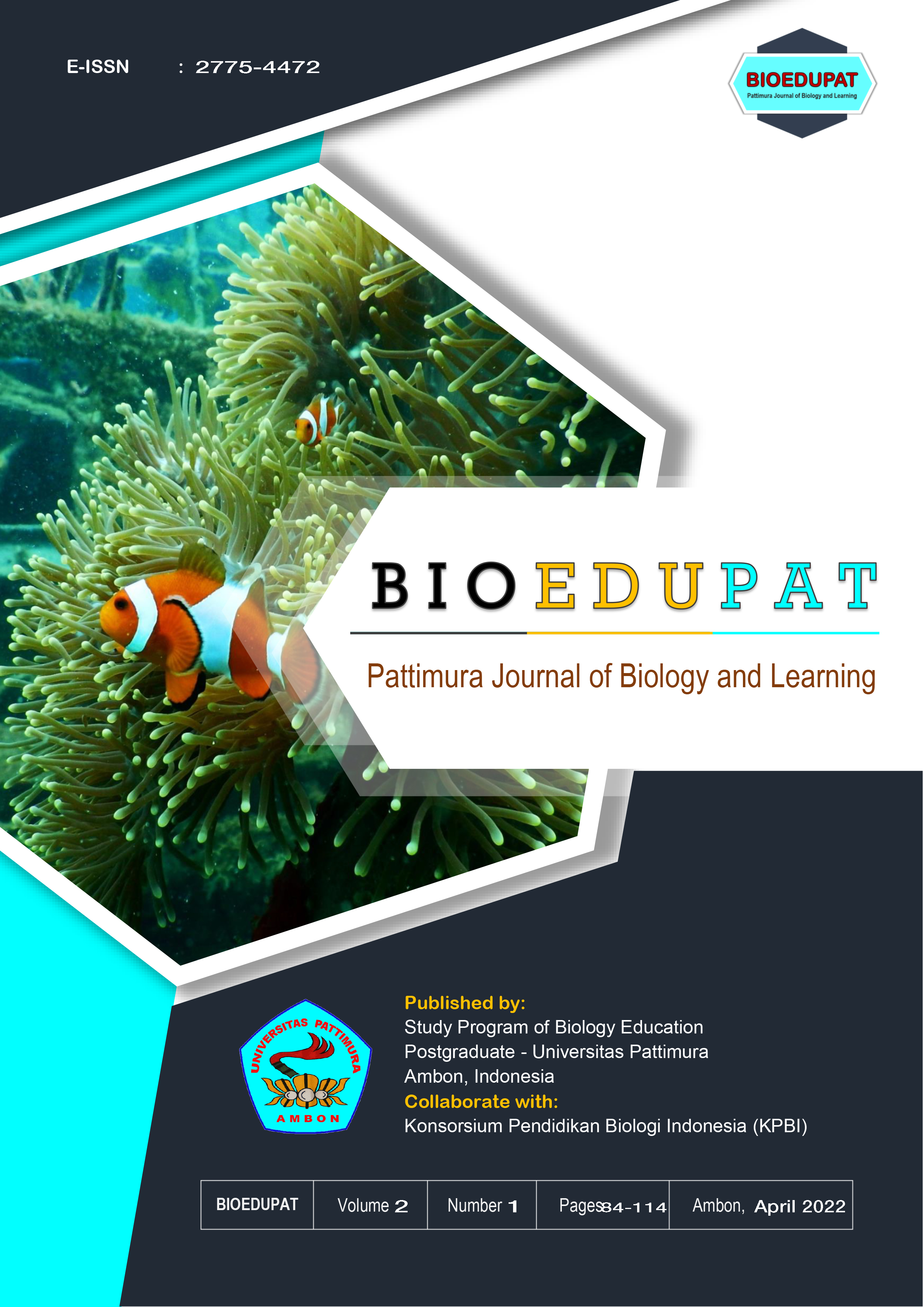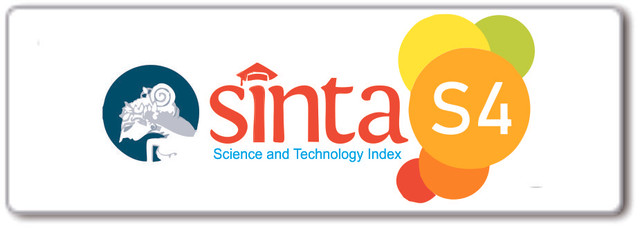Application of the science model community-based problem solving technology in improving learning outcomes, science process skills, and students scientific attitudes
Abstract
The STS (science technology and society) learning model teaches students to pay attention to problems that then emerge as other impacts of the use of new technologies in social life. Whereas the Problem Solving learning model teaches students to be trained in problem-solving using creative ways. The purpose of this study was to analyze the effect of the application of STS based problem-solving learning models on the learning outcomes, science process skills, scientific attitude of senior high school 6 Ambon. The research was conducted from January to February 2020. The research design was a quasi-experimental study using a non-equivalent group design. Data were analyzed using descriptive and inferential statistics using the ANCOVA and ANOVA tests. Descriptive statistics are used to explain the range of research data on cognitive learning outcomes, science process skills, and scientific attitudes in the table. ANCOVA test is used to analyze the effect of learning models on cognitive learning outcomes. ANOVA test is used to analyze the effect of learning models on scientific process skills and scientific attitudes. The results showed that the distribution of cognitive learning outcomes, science process skills, and scientific attitudes of students in the experimental class taught using STS based problem solving learning models were better than students taught using conventional learning models (STAD). ANCOVA statistical test shows that the significant value is 0,000 <0.05. This shows that the learning model influences students' cognitive learning outcomes. ANOVA statistical test showed that the significant value was 0,000 <0.05. This shows that the learning model influences the science process skills and scientific attitude. The stages in the STS based problem solving learning models can accommodate cognitive learning outcomes, process skills, and scientific attitudes of senior high school 6 Ambon on Environmental Friendly Technology material.
Downloads
Copyright (c) 2022 Meganita Meganita, Pamella Mercy Papilaya, Dominggus Rumahlatu

This work is licensed under a Creative Commons Attribution-NonCommercial-ShareAlike 4.0 International License.
Authors who publish with BIOEDUPAT: Pattimura Journal of Biology and Learning agree to the following terms:
- Authors retain copyright and grant the journal right of first publication with the work simultaneously licensed under a Creative Commons Attribution License (CC BY-NC-SA 4.0) that allows others to share the work with an acknowledgment of the work's authorship and initial publication in this journal.
- Authors are able to enter into separate, additional contractual arrangements for the non-exclusive distribution of the journal's published version of the work (e.g., post it to an institutional repository or publish it in a book), with an acknowledgment of its initial publication in this journal.
- Authors are permitted and encouraged to post their work online (e.g., in institutional repositories or on their website) prior to and during the submission process, as it can lead to productive exchanges, as well as earlier and greater citation of published work.









 This work is licensed under a
This work is licensed under a 